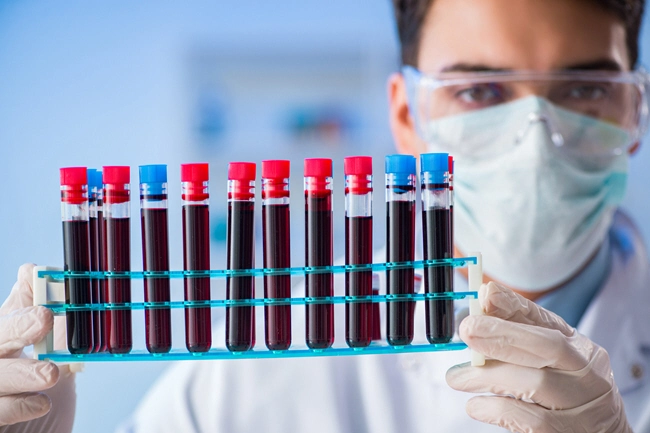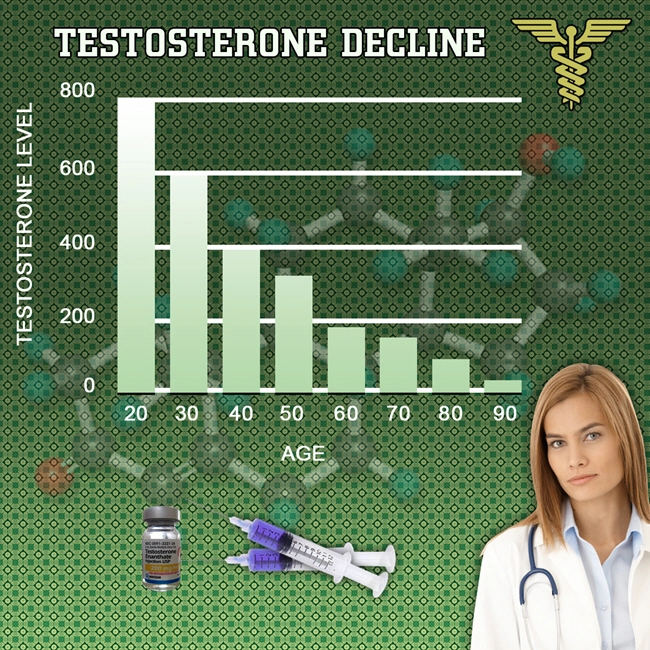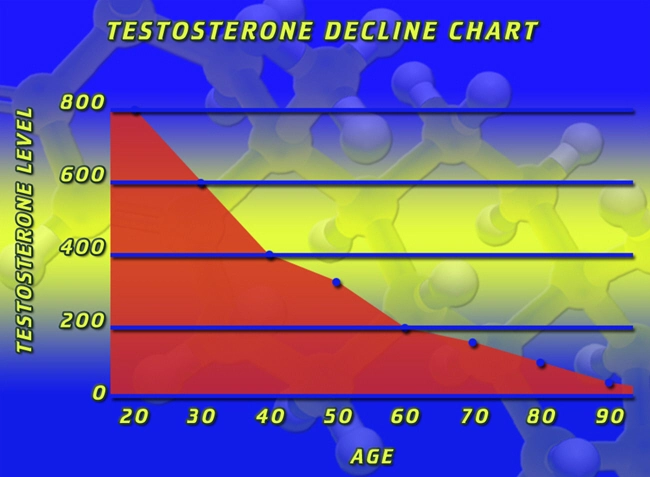
Introduction
Testosterone, a crucial hormone in men, plays a pivotal role in various physiological functions, including muscle mass, bone density, and sexual health. Recent research has begun to shed light on the relationship between low testosterone levels and the increased risk of psychiatric disorders among American men. This article delves into the complexities of this association, exploring the potential mechanisms and implications for mental health.
Understanding Low Testosterone
Low testosterone, or hypogonadism, is a condition characterized by insufficient production of testosterone by the testes. It can manifest through symptoms such as decreased libido, fatigue, and mood disturbances. In the United States, it is estimated that up to 40% of men over the age of 45 may experience low testosterone levels, a prevalence that underscores the importance of understanding its broader health impacts.
The Connection to Psychiatric Disorders
Emerging evidence suggests that low testosterone may be linked to an increased risk of psychiatric disorders. Studies have shown that men with hypogonadism are more likely to experience depression, anxiety, and other mood disorders. For instance, a longitudinal study published in the *Journal of Clinical Psychiatry* found that men with low testosterone levels had a significantly higher incidence of depressive symptoms compared to those with normal levels.
Potential Mechanisms
Several mechanisms may explain the association between low testosterone and psychiatric disorders. Testosterone is known to influence neurotransmitter systems, including serotonin and dopamine, which are critical in regulating mood. Low levels of testosterone may disrupt these systems, leading to mood instability and increased susceptibility to depression and anxiety.
Additionally, testosterone has neuroprotective properties and may play a role in maintaining brain health. A reduction in testosterone could potentially impair cognitive function and increase the risk of neurodegenerative diseases, which in turn could contribute to psychiatric symptoms.
Clinical Implications
The recognition of the link between low testosterone and psychiatric disorders has significant clinical implications. Healthcare providers should consider screening men with psychiatric symptoms for low testosterone levels. Early detection and treatment of hypogonadism could potentially mitigate the risk of developing severe psychiatric conditions.
Moreover, testosterone replacement therapy (TRT) has been shown to improve mood and reduce symptoms of depression in men with low testosterone. However, the use of TRT must be carefully monitored due to potential side effects and the need for individualized treatment plans.
Challenges and Future Directions
Despite the growing body of evidence, there are challenges in establishing a definitive causal relationship between low testosterone and psychiatric disorders. The complexity of hormonal regulation and the influence of other factors, such as lifestyle and genetics, complicate the picture.
Future research should focus on longitudinal studies to better understand the temporal relationship between testosterone levels and the onset of psychiatric symptoms. Additionally, randomized controlled trials are needed to assess the efficacy and safety of TRT in improving mental health outcomes in men with low testosterone.
Conclusion
The link between low testosterone and the risk of psychiatric disorders in American men is a critical area of research with significant implications for public health. As our understanding of this relationship deepens, it is essential for healthcare providers to integrate hormonal assessments into the management of psychiatric conditions. By doing so, we can offer more comprehensive care and improve the quality of life for countless men across the nation.
Contact Us Today For A Free Consultation
Dear Patient,
Once you have completing the above contact form, for security purposes and confirmation, please confirm your information by calling us.
Please call now: 1-800-380-5339.
Welcoming You To Our Clinic, Professor Tom Henderson.

- Environmental Toxins Linked to Low Testosterone in American Men: Impacts and Mitigation Strategies [Last Updated On: February 28th, 2025] [Originally Added On: February 28th, 2025]
- Low Testosterone: Symptoms, Risks, and Comprehensive Management Strategies for American Males [Last Updated On: March 17th, 2025] [Originally Added On: March 17th, 2025]
- Alcohol's Impact on Testosterone: Risks and Strategies for American Men [Last Updated On: March 17th, 2025] [Originally Added On: March 17th, 2025]
- Low Testosterone's Impact on Muscle Mass and Strength in American Males [Last Updated On: March 17th, 2025] [Originally Added On: March 17th, 2025]
- Chronic Illnesses and Low Testosterone: Impacts and Management in American Males [Last Updated On: March 19th, 2025] [Originally Added On: March 19th, 2025]
- Low Testosterone's Impact on Cognitive Function in American Men: Risks and Interventions [Last Updated On: March 19th, 2025] [Originally Added On: March 19th, 2025]
- Low Testosterone in American Men: Impact on Energy and Treatment Options [Last Updated On: March 19th, 2025] [Originally Added On: March 19th, 2025]
- Vitamin D's Role in Boosting Testosterone Levels in American Men: A Comprehensive Overview [Last Updated On: March 20th, 2025] [Originally Added On: March 20th, 2025]
- Economic Burden of Low Testosterone on American Men's Health and Healthcare System [Last Updated On: March 20th, 2025] [Originally Added On: March 20th, 2025]
- Low Testosterone and Mood Disorders: Impacts and Management for American Men [Last Updated On: March 21st, 2025] [Originally Added On: March 21st, 2025]
- Weight Loss Boosts Testosterone: Strategies for American Males with Low T [Last Updated On: March 21st, 2025] [Originally Added On: March 21st, 2025]
- Low Testosterone and Diabetes: Interlinked Challenges and Management Strategies for Men's Health [Last Updated On: March 21st, 2025] [Originally Added On: March 21st, 2025]
- Low Testosterone Effects on Skin Health in American Men: Causes and Solutions [Last Updated On: March 22nd, 2025] [Originally Added On: March 22nd, 2025]
- Managing Low Testosterone in Aging American Men: Symptoms, Treatments, and Holistic Approaches [Last Updated On: March 22nd, 2025] [Originally Added On: March 22nd, 2025]
- Low Testosterone and Osteoporosis: Risks, Diagnosis, and Management in American Males [Last Updated On: March 22nd, 2025] [Originally Added On: March 22nd, 2025]
- Boosting Testosterone in American Men: The Power of Physical Activity and Lifestyle [Last Updated On: March 23rd, 2025] [Originally Added On: March 23rd, 2025]
- Low Testosterone and Prostate Health: Understanding Risks and Management Strategies [Last Updated On: March 23rd, 2025] [Originally Added On: March 23rd, 2025]
- Low Testosterone and Hair Loss: Mechanisms and Management in American Males [Last Updated On: March 23rd, 2025] [Originally Added On: March 23rd, 2025]
- Low Testosterone's Impact on Immune Function in American Males: Insights and Strategies [Last Updated On: March 23rd, 2025] [Originally Added On: March 23rd, 2025]
- Low Testosterone: Symptoms, Impact, and Treatment Options for American Men [Last Updated On: March 23rd, 2025] [Originally Added On: March 23rd, 2025]
- Medications Impacting Testosterone: What American Men Need to Know and Manage [Last Updated On: March 24th, 2025] [Originally Added On: March 24th, 2025]
- Sleep Apnea's Impact on Testosterone Levels in American Males: A Comprehensive Analysis [Last Updated On: March 24th, 2025] [Originally Added On: March 24th, 2025]
- Low Testosterone's Impact on American Males' Body Composition and Health [Last Updated On: March 24th, 2025] [Originally Added On: March 24th, 2025]
- Low Testosterone and Heart Disease Risk in American Men: Current Insights and Interventions [Last Updated On: March 24th, 2025] [Originally Added On: March 24th, 2025]
- Chronic Pain and Low Testosterone: A Critical Health Issue for American Males [Last Updated On: March 24th, 2025] [Originally Added On: March 24th, 2025]
- Herbal Supplements for Low Testosterone: Benefits and Considerations for American Men [Last Updated On: March 24th, 2025] [Originally Added On: March 24th, 2025]
- Environmental Estrogens and Declining Testosterone in American Males: A Public Health Concern [Last Updated On: March 25th, 2025] [Originally Added On: March 25th, 2025]
- Low Testosterone's Impact on Emotional Wellbeing in American Men: Insights and Guidance [Last Updated On: March 25th, 2025] [Originally Added On: March 25th, 2025]
- Dietary Impact on Testosterone Levels in American Men: Insights and Recommendations [Last Updated On: March 25th, 2025] [Originally Added On: March 25th, 2025]
- Managing Low Testosterone in Aging Men: Symptoms, Treatments, and Lifestyle Strategies [Last Updated On: March 25th, 2025] [Originally Added On: March 25th, 2025]
- Zinc's Role in Boosting Testosterone Levels in Aging American Men [Last Updated On: March 25th, 2025] [Originally Added On: March 25th, 2025]
- Chronic Inflammation's Impact on Testosterone Levels in American Males [Last Updated On: March 25th, 2025] [Originally Added On: March 25th, 2025]
- Testosterone's Role in Male Libido: Understanding, Diagnosing, and Treating Low Levels [Last Updated On: March 25th, 2025] [Originally Added On: March 25th, 2025]
- Low Testosterone and Depression in American Men: Links, Impacts, and Management Strategies [Last Updated On: March 25th, 2025] [Originally Added On: March 25th, 2025]
- Low Testosterone and Metabolic Syndrome: Risks and Strategies for American Men [Last Updated On: March 26th, 2025] [Originally Added On: March 26th, 2025]
- Genetic Factors in Low Testosterone Among American Males: Insights and Implications [Last Updated On: March 26th, 2025] [Originally Added On: March 26th, 2025]
- Smoking's Impact on Testosterone Levels in American Men: A Comprehensive Analysis [Last Updated On: March 26th, 2025] [Originally Added On: March 26th, 2025]
- Low Testosterone and Thyroid Disorders: Exploring Risks and Treatment in American Men [Last Updated On: March 26th, 2025] [Originally Added On: March 26th, 2025]
- Low Testosterone and Anemia: Impacts and Management in American Men [Last Updated On: March 26th, 2025] [Originally Added On: March 26th, 2025]
- Shift Work's Impact on American Men's Testosterone Levels and Health [Last Updated On: March 26th, 2025] [Originally Added On: March 26th, 2025]
- Liver Health and Testosterone: Vital Connections and Management Strategies for American Men [Last Updated On: March 26th, 2025] [Originally Added On: March 26th, 2025]
- Hormonal Imbalance and Low Testosterone: Causes, Symptoms, and Treatment Options for American Males [Last Updated On: March 27th, 2025] [Originally Added On: March 27th, 2025]
- Chronic Stress and Low Testosterone: Impacts and Strategies for American Men [Last Updated On: March 27th, 2025] [Originally Added On: March 27th, 2025]
- Respiratory Health's Impact on Testosterone Levels in American Males: Management Strategies [Last Updated On: March 28th, 2025] [Originally Added On: March 28th, 2025]
- Low Testosterone and Insulin Resistance: A Growing Concern for American Men's Health [Last Updated On: March 28th, 2025] [Originally Added On: March 28th, 2025]
- Low Testosterone Linked to Increased Kidney Disease Risk in American Men [Last Updated On: March 28th, 2025] [Originally Added On: March 28th, 2025]
- Low Testosterone Linked to Increased Autoimmune Disease Risk in American Men [Last Updated On: March 28th, 2025] [Originally Added On: March 28th, 2025]
- Nutritional Deficiencies Impacting Testosterone Levels in American Males: Zinc, Vitamin D, Magnesium [Last Updated On: March 29th, 2025] [Originally Added On: March 29th, 2025]
- Low Testosterone Linked to Neurological Disorders in American Men: Research and Implications [Last Updated On: March 30th, 2025] [Originally Added On: March 30th, 2025]
- Gut Microbiome's Impact on Testosterone Levels in American Males: A Comprehensive Review [Last Updated On: March 30th, 2025] [Originally Added On: March 30th, 2025]
- Dental Health's Impact on Testosterone Levels in American Males: Emerging Insights [Last Updated On: March 31st, 2025] [Originally Added On: March 31st, 2025]
- Low Testosterone Linked to Dermatological Issues in American Men: Research and Management [Last Updated On: March 31st, 2025] [Originally Added On: March 31st, 2025]
- Low Testosterone Linked to Increased Eye Disorder Risk in American Men [Last Updated On: March 31st, 2025] [Originally Added On: March 31st, 2025]
- Reproductive Health's Impact on Testosterone Levels in American Males: A Comprehensive Analysis [Last Updated On: April 1st, 2025] [Originally Added On: April 1st, 2025]
- Low Testosterone Linked to Musculoskeletal Disorders in American Men: Interventions and Insights [Last Updated On: April 2nd, 2025] [Originally Added On: April 2nd, 2025]
- ENT Health and Testosterone: Managing Conditions to Boost Hormonal Balance in Males [Last Updated On: April 4th, 2025] [Originally Added On: April 4th, 2025]
- Low Testosterone and Urological Health: Risks, Detection, and Management Strategies [Last Updated On: April 5th, 2025] [Originally Added On: April 5th, 2025]
- Low Testosterone Linked to Hematological Risks in American Men: Insights and Management [Last Updated On: April 5th, 2025] [Originally Added On: April 5th, 2025]
- Low Testosterone Linked to Higher Infection Risk in American Men: Research Insights [Last Updated On: April 6th, 2025] [Originally Added On: April 6th, 2025]
- Understanding and Managing Low Testosterone: A Holistic Endocrine Approach [Last Updated On: April 6th, 2025] [Originally Added On: April 6th, 2025]
- Immune System's Role in Testosterone Levels: Impacts and Interventions for American Males [Last Updated On: April 8th, 2025] [Originally Added On: April 8th, 2025]
- Low Testosterone and Surgical Risks in American Men: Implications and Recommendations [Last Updated On: April 10th, 2025] [Originally Added On: April 10th, 2025]
- Trauma's Impact on Testosterone Levels in American Males: Clinical Insights and Management [Last Updated On: April 10th, 2025] [Originally Added On: April 10th, 2025]
- Rheumatological Conditions and Low Testosterone: Impacts and Management Strategies [Last Updated On: April 11th, 2025] [Originally Added On: April 11th, 2025]
- Cancer's Impact on Testosterone Levels in American Males: Mechanisms and Management [Last Updated On: April 13th, 2025] [Originally Added On: April 13th, 2025]
- Testosterone Levels and Wound Healing in American Males: Impacts and Management Strategies [Last Updated On: April 14th, 2025] [Originally Added On: April 14th, 2025]
- Low Testosterone and Vascular Disorders: Risks, Mechanisms, and Management in American Men [Last Updated On: April 14th, 2025] [Originally Added On: April 14th, 2025]









